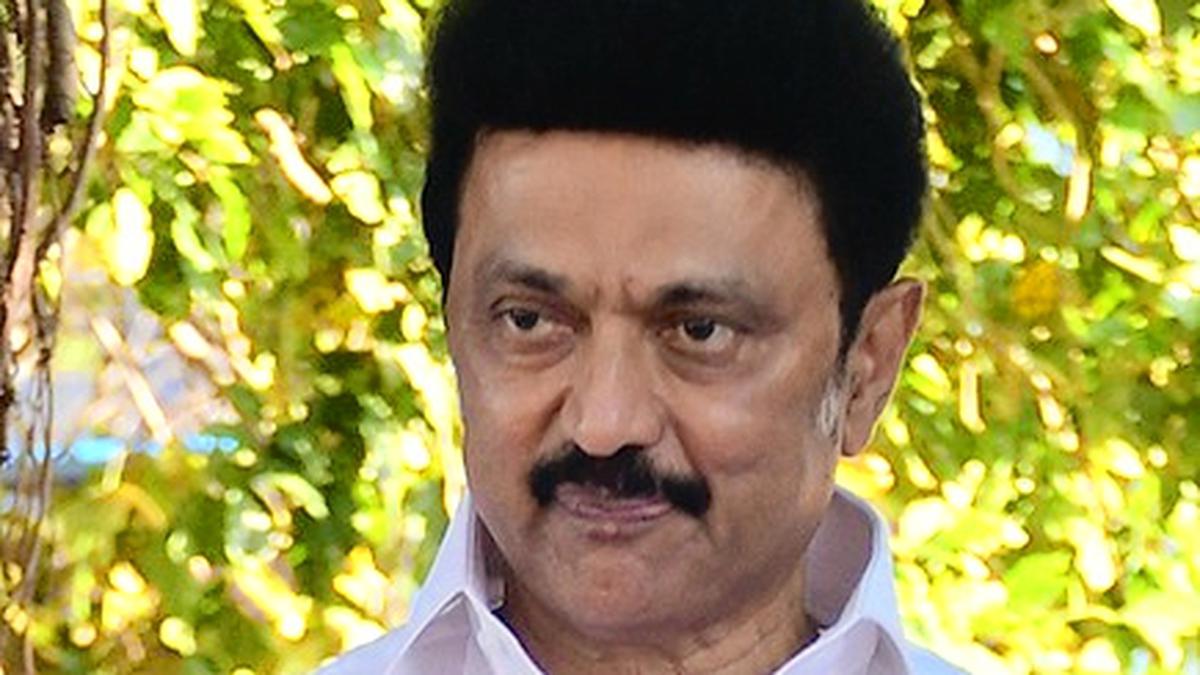
Tamil Nadu government to install statue of former Prime Minister V.P. Singh in Chennai
The Hindu
Making a suo motu statement in the Legislative Assembly on Thursday, CM M.K. Stalin said the statue would be installed to express “Tamil society’s gratitude” to the former PM for his contribution to social justice and other causes
Tamil Nadu Chief Minister M.K. Stalin on Thursday told the Legislative Assembly that a statue of former Prime Minister V.P. Singh, would be installed in Chennai. This was “to express the Tamil society’s gratitude” for his contribution to social justice, creation of the Cauvery Water Tribunal, and naming of the international airport terminal in Chennai after late Chief Minister C.N. Annadurai (of the DMK) and the domestic airport terminal after another former Chief Minister, K. Kamaraj (of the Congress).
Making a suo motu statement, Mr. Stalin said it was Singh who implemented 27 per cent reservation for the Other Backward Classes (OBC) in Central government jobs based on the recommendations of B.P. Mandal, chairman of the Second Backward Classes Commission.
The Chief Minister also pointed out that though the Constitution provided reservations for Scheduled Castes and Scheduled Tribes (SC/ST), Backward Classes were not given reservations commensurate with their population.

“Writing, in general, is a very solitary process,” says Yauvanika Chopra, Associate Director at The New India Foundation (NIF), which, earlier this year, announced the 12th edition of its NIF Book Fellowships for research and scholarship about Indian history after Independence. While authors, in general, are built for it, it can still get very lonely, says Chopra, pointing out that the fellowship’s community support is as valuable as the monetary benefits it offers. “There is a solid community of NIF fellows, trustees, language experts, jury members, all of whom are incredibly competent,” she says. “They really help make authors feel supported from manuscript to publication, so you never feel like you’re struggling through isolation.”

Several principals of government and private schools in Delhi on Tuesday said the Directorate of Education (DoE) circular from a day earlier, directing schools to conduct classes in ‘hybrid’ mode, had caused confusion regarding day-to-day operations as they did not know how many students would return to school from Wednesday and how would teachers instruct in two modes — online and in person — at once. The DoE circular on Monday had also stated that the option to “exercise online mode of education, wherever available, shall vest with the students and their guardians”. Several schoolteachers also expressed confusion regarding the DoE order. A government schoolteacher said he was unsure of how to cope with the resumption of physical classes, given that the order directing government offices to ensure that 50% of the employees work from home is still in place. On Monday, the Commission for Air Quality Management in the National Capital Region and Adjoining Areas (CAQM) had, on the orders of the Supreme Court, directed schools in Delhi-NCR to shift classes to the hybrid mode, following which the DoE had issued the circular. The court had urged the Centre’s pollution watchdog to consider restarting physical classes due to many students missing out on the mid-day meals and lacking the necessary means to attend classes online. The CAQM had, on November 20, asked schools in Delhi-NCR to shift to the online mode of teaching.









